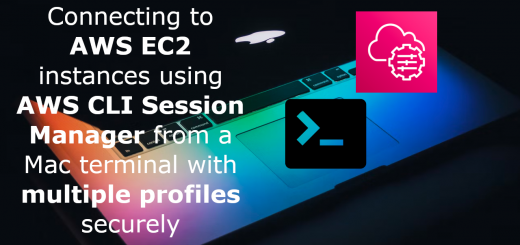“Unlocking Career Growth: Why Every Developer Should Embrace DevOps”
Relevance of DevOps for a Developer: Basics to Charge Up Your Career
In today’s fast-paced software development landscape, the role of a developer extends far beyond writing code. The emergence of DevOps has revolutionized the way development teams operate, emphasizing collaboration between development and operations. This paradigm shift not only enhances efficiency but also fosters a culture of continuous delivery and improvement. As an experienced software engineer, understanding DevOps principles can significantly charge up your career, positioning you as a key player in your organization.
In this blog post, we will explore the relevance of DevOps for developers, highlighting essential concepts and practices that can elevate your professional profile. By adopting a DevOps mindset, you can bridge the gap between development and operations, ultimately leading to more robust, scalable, and maintainable systems.
Understanding DevOps: A Cultural Shift
DevOps is not merely a set of tools; it is a cultural transformation that promotes collaboration, communication, and integration between software development and IT operations. By breaking down silos, teams can achieve faster deployments, improved reliability, and enhanced customer satisfaction. As a developer, embracing the DevOps culture means becoming more involved in the full software lifecycle, from planning to deployment and monitoring.
Key DevOps Practices for Developers
To effectively contribute to a DevOps environment, developers should familiarize themselves with key practices that drive success:
- Continuous Integration (CI): Automating the integration of code changes into a shared repository, followed by automated testing.
- Continuous Delivery (CD): Ensuring that code is always in a deployable state, allowing for frequent releases.
- Infrastructure as Code (IaC): Managing infrastructure through code to automate the provisioning and management of resources.
- Monitoring and Logging: Implementing comprehensive logging and monitoring to gain insights into application performance and user experience.
- Collaboration and Communication: Promoting open communication channels among team members to facilitate feedback and knowledge sharing.
Code Example: Setting Up a CI/CD Pipeline
Let’s look at a simple example of a CI/CD pipeline using GitHub Actions. This pipeline automatically runs tests and deploys the application whenever changes are pushed to the main branch.
name: CI/CD Pipeline
on:
push:
branches:
- main
jobs:
build:
runs-on: ubuntu-latest
steps:
- name: Checkout code
uses: actions/checkout@v2
- name: Set up Node.js
uses: actions/setup-node@v2
with:
node-version: '14'
- name: Install dependencies
run: npm install
- name: Run tests
run: npm test
- name: Deploy
run: npm run deploy
Pros and Cons of Embracing DevOps
Like any methodology, adopting DevOps has its advantages and challenges. Understanding these can help you navigate the transition more effectively.
- Pros:
- Increased deployment frequency and faster time to market.
- Improved collaboration between teams, leading to better product quality.
- Enhanced system reliability through automated testing and monitoring.
- Greater customer satisfaction due to quicker feature delivery.
- Cons:
- Initial investment in training and tools can be high.
- Requires a cultural shift that may face resistance.
- Increased complexity in managing automated processes.
Conclusion
DevOps is not just a trend; it is a critical aspect of modern software development that every developer should understand. By adopting DevOps practices, you can significantly enhance your skill set, become more valuable to your organization, and ultimately advance your career. The shift to a collaborative, automated, and feedback-driven approach will not only improve your work but also contribute to the success of your team and organization as a whole.
TL;DR Summary
- DevOps fosters collaboration between development and operations, enhancing efficiency and reliability.
- Key practices include Continuous Integration, Continuous Delivery, Infrastructure as Code, and proactive monitoring.
- Embracing DevOps can boost your career by making you a more versatile and valuable developer.






